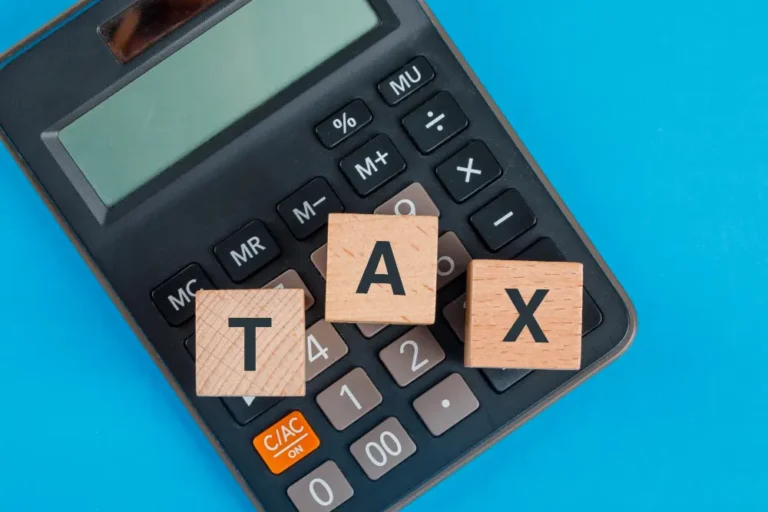As an individual residing in Canada, understanding your tax obligations is crucial. Let’s delve into the intricacies of Canadian taxation to determine how much tax you’ll pay in 2024 and equip you with the knowledge needed to navigate the tax landscape effectively.
Introduction to Canadian Taxation
Taxation is the backbone of any government’s revenue system, fueling essential services and infrastructure development. In Canada, the tax system is comprehensive, encompassing various types of taxes to fund public expenditures.

Types of Taxes in Canada
Income Tax
Income tax is one of the primary sources of government revenue in Canada, levied on individuals and corporations based on their earnings.
Sales Tax (GST/HST)
The Goods and Services Tax (GST) and Harmonized Sales Tax (HST) are consumption taxes applied to most goods and services sold in Canada.
Property Tax
Property tax is imposed by municipalities on the assessed value of properties and is used to fund local services and infrastructure.
Excise Taxes
Excise taxes are imposed on specific goods such as alcohol, tobacco, and gasoline to discourage their consumption and generate revenue.
Other Taxes
Canada also levies taxes on imports, dividends, and capital gains, among other sources of income.

Understanding Income Tax in Canada
Tax Brackets and Rates
Income tax in Canada is progressive, meaning that individuals with higher incomes pay a higher percentage of tax. Tax brackets and rates vary based on income levels.
Taxable Income Components
Taxable income includes employment income, investment income, and certain benefits received, with deductions and credits available to reduce taxable income.
Deductions and Credits
Various deductions and tax credits are available to Canadians, including those for childcare expenses, education costs, and charitable donations.
Tax Tip: For comprehensive information on Canadian Tax Rates, consult reliable sources like Turnaround Accountants. Understanding the Tables of Personal Income Tax Rates is essential, especially if you are comparing them to the marginal tax rates in tax calculators.
Federal Basic Personal Amount
| 2024 Personal Amounts (1) | 2024 Tax Rate | 2023 Personal Amounts (1) | 2023 Tax Rate |
|---|---|---|---|
| Minimum | $14,156 | 15% | Minimum |
| Maximum | $15,705 | 15% | Maximum |
Canadian Tax Rates – Federal
| 2024 Taxable Income (1) | Canada 2024 Marginal Tax Rates | 2023 Taxable Income (1) | Canada 2023 Marginal Tax Rates |
|---|---|---|---|
| Other Income | Capital Gains | Canadian Dividends | Other Income |
| Eligible | Non-Eligible | Eligible | Non-Eligible |
|---|---|---|---|
| first $55,867 | 15.00% | 7.50% | -0.03% |
| over $55,867 up to $111,733 | 20.50% | 10.25% | 7.56% |
| over $111,733 up to $173,205 | 26.00% | 13.00% | 15.15% |
| over $173,205 up to $246,752 | 29.32% | 14.66% | 19.73% |
| over $246,752 | 33.00% | 16.50% | 24.81% |
Marginal tax rate for dividends is a % of actual dividends received (not grossed-up taxable amount). Marginal tax rate for capital gains is a % of total capital gains (not taxable capital gains). Gross-up rate for eligible dividends is 38%, and for non-eligible dividends is 15%. For more information, see dividend tax credits.

Federal vs. Provincial Taxes
Differences in Tax Rates
Canada has both federal and provincial income taxes, with each province setting its own tax rates, leading to variations in overall tax liability.
Impact on Overall Tax Liability
The interplay between federal and provincial taxes significantly influences the total amount of tax owed by individuals.
Calculating Your Tax Liability
Steps to Determine Taxes Owed
Calculating tax liability involves determining taxable income, applying the appropriate tax rates, and accounting for deductions and credits.
Importance of Accurate Reporting
Accurate reporting is essential to avoid penalties and ensure compliance with tax laws.

Common Tax Deductions and Credits
Overview of Deductions
Deductions such as RRSP contributions, medical expenses, and eligible employment expenses can significantly reduce taxable income.
Tax Credits Available to Canadians
Tax credits, including the Canada Child Benefit and the Disability Tax Credit, provide direct reductions in tax owed.
Tax Planning Strategies
Maximizing Deductions
Strategic tax planning can help individuals maximize deductions and minimize tax liability through RRSP contributions, income splitting, and other strategies.
Utilizing Tax-Efficient Investments
Investing in tax-efficient vehicles such as Tax-Free Savings Accounts (TFSA) and Registered Education Savings Plans (RESP) can minimize tax implications.
Changes to Tax Laws in 2024
Updates on Recent Tax Legislation
Stay informed about recent changes to tax laws, including updates to tax rates, deductions, and credits.
Implications for Taxpayers
Understanding how changes in tax laws affect your financial situation is crucial for effective tax planning.
Filing Your Tax Return
Deadlines and Requirements
Familiarize yourself with tax filing deadlines and requirements to ensure timely and accurate submission of your tax return.
Options for Filing
Choose the filing method that best suits your needs, whether it’s filing online, using tax preparation software, or seeking assistance from a tax professional.

Consequences of Non-Compliance
Penalties for Late or Incorrect Filing
Failure to comply with tax laws can result in penalties, fines, and interest charges, highlighting the importance of timely and accurate reporting.
Importance of Compliance
Maintaining compliance with tax laws is essential for avoiding legal issues and preserving your financial well-being.
Tax Resources and Assistance
Government Resources
The Canada Revenue Agency (CRA) offers a wealth of resources and information to help taxpayers understand their obligations and navigate the tax system.
Seeking Professional Advice
Consulting with a tax professional can provide personalized guidance and ensure that you’re maximizing tax-saving opportunities.
Understanding GST/HST
Overview of Goods and Services Tax/Harmonized Sales Tax
Gain insight into the GST/HST system and its implications for consumers and businesses operating in Canada.
How It Affects Consumers and Businesses
Understand how GST/HST applies to purchases and sales and its impact on pricing and profitability.
Taxation of Investments
Capital Gains Tax
Learn about the tax treatment of capital gains and strategies for minimizing tax liability on investment gains.
Tax Treatment of Dividends and Interest Income
Understand how dividends and interest income are taxed and strategies for optimizing investment returns.
Taxation of Self-Employment Income
Unique Considerations for Self-Employed Individuals
Self-employed individuals have specific tax obligations, including reporting business income and claiming deductions for business expenses.
Reporting Requirements
Ensure compliance with tax laws by accurately reporting self-employment income and expenses.

Conclusion
Navigating the Canadian tax system can be complex, but with the right knowledge and planning, you can effectively manage your tax obligations and optimize your financial situation.
Stay informed about changes to tax laws, maximize deductions and credits, and seek professional advice when needed to ensure compliance and minimize tax liability.
FAQs
What is the deadline for filing taxes in Canada?
The deadline for filing taxes in Canada is typically April 30th, but it may vary depending on your individual circumstances.
Can I claim deductions for medical expenses on my tax return? Yes, you can claim eligible medical expenses as deductions on your tax return, subject to certain criteria.
Are there penalties for late tax filing in Canada?
Yes, there are penalties for late tax filing in Canada, which can increase the longer you delay filing your return.
How can I reduce my tax liability in Canada? You can reduce your tax liability in Canada by maximizing deductions, utilizing tax credits, and engaging in strategic tax planning.
Do I need to report foreign income on my Canadian tax return? Yes, you are required to report foreign income on your Canadian tax return, including income earned abroad and foreign investments.






